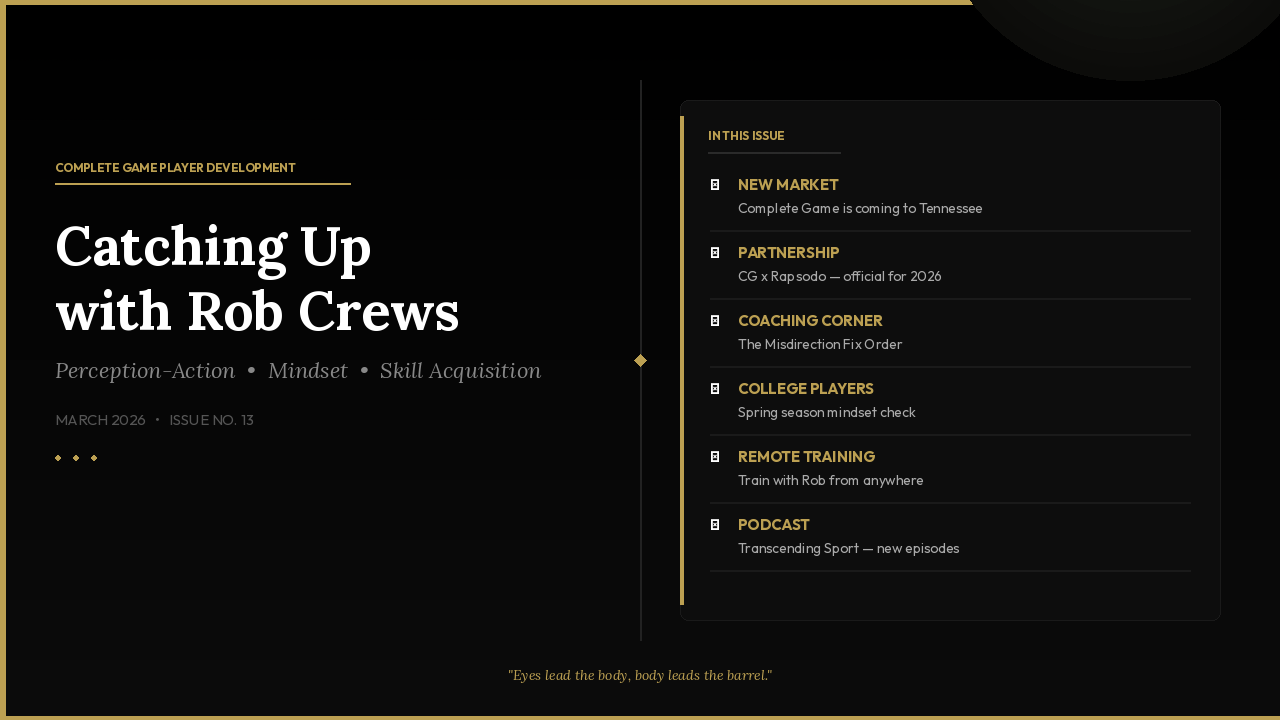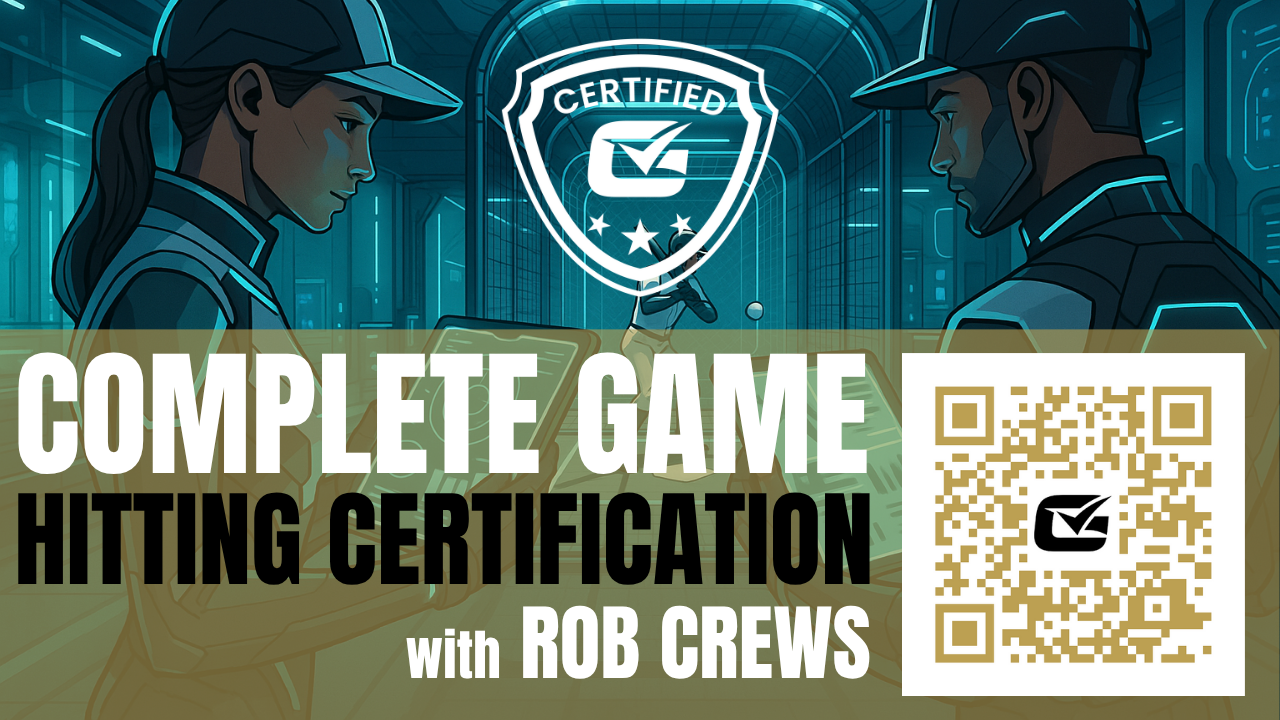CONQUERING IMPOSTER SYNDROME: Building Unshakeable Athletic Confidence
Jun 22, 2025
CONQUERING IMPOSTER SYNDROME
Building Unshakeable Athletic Confidence
THE REALITY CHECK
If you've ever thought:
-
"Do I really deserve to be on this team?"
-
"Everyone else seems so much more confident than me"
-
"They're going to figure out I'm not as good as they think"
-
"I don't belong in this conversation with these players"
-
"What if I let everyone down?"
YOU'RE NOT ALONE. These thoughts are called "imposter syndrome" and they affect athletes at every level - from youth sports to the pros.
UNDERSTANDING THE MENTAL GAME
SELF-WORTH vs. SELF-CONFIDENCE vs. SELF-EFFICACY
SELF-WORTH:
-
Your value as a person, completely separate from athletic performance
-
Key Truth: You matter and have value regardless of what happens in competition
-
Challenge: Don't tie your worth to your stats or playing time
-
Healthy Mindset: "I had a bad game, but I'm not a bad person"
SELF-CONFIDENCE:
-
Your general belief that you belong at this level of competition
-
Key Truth: Confidence is built through preparation, experience, and mental training
-
Challenge: Every new team/level tests your confidence - this is normal
-
Healthy Mindset: "I belong here and can compete with anyone"
SELF-EFFICACY:
-
Your belief in your ability to perform specific skills in specific situations
-
Key Truth: This is task-specific and can be rebuilt systematically
-
Challenge: New competition levels require rebuilding efficacy for familiar skills
-
Healthy Mindset: "I can execute this skill against this level of competition"
THE CONFIDENCE TOOLKIT
Practical Strategies You Can Use Today
1. REFRAME COMPARISONS
Instead of: "They're so much better than me" Try: "They can teach me something valuable"
Action Steps:
-
Identify one skill a teammate excels at
-
Ask them about their approach or training method
-
Focus on learning rather than comparing
2. EVIDENCE COLLECTION
The Problem: Your brain focuses on failures and forgets successes The Solution: Deliberately collect evidence of your capabilities
Victory Journal Method:
-
Daily Practice: Write down 3 things:
-
One skill improvement (however small)
-
One positive team interaction
-
One mental victory (good attitude, bouncing back, etc.)
-
Weekly Review: Read your entries to remind yourself of progress
-
Game Preparation: Review before big games to boost confidence
3. CONTRIBUTION MINDSET
Shift from: "Am I good enough?" Shift to: "How can I contribute?"
Find Your Value Beyond Stats:
-
Work ethic that pushes others
-
Positive energy that lifts the team
-
Questions that help everyone learn
-
Support for teammates who are struggling
-
Reliability in preparation and attitude
4. SITUATIONAL BREATHING
When anxiety spikes (before competition, after mistakes, during pressure moments):
The 4-7-8 Technique:
-
Inhale for 4 counts
-
Hold for 7 counts
-
Exhale for 8 counts
-
Repeat 3 times
Why it works: Physically interrupts your stress response and gives you back control
5. THE "NEW PLAYER" ADVANTAGE
Being new isn't just a disadvantage - it's also an opportunity:
Advantages of Being New:
-
Fresh perspective unencumbered by "how we've always done things"
-
Permission to ask questions that experienced players might avoid
-
Lower expectations allow for calculated risks
-
Opportunity to establish your reputation from scratch
-
Chance to bring new energy and ideas to the team
UNIVERSAL CONFIDENCE BUILDERS
TRUTHS TO REMEMBER:
-
You were chosen for this team - coaches saw something in you
-
Everyone has first days - even the most confident players started somewhere
-
Your background is valuable - you bring unique experiences and perspectives
-
Growth is expected - you're here to develop, not to already be perfect
-
The team is better with you on it - diversity of skills and personalities strengthens teams
DAILY CONFIDENCE PRACTICES:
BEFORE PRACTICE/GAMES:
-
Review your Victory Journal entries
-
Use 4-7-8 breathing if feeling anxious
-
Focus on contributing rather than proving yourself
-
Remind yourself: "I belong here"
DURING PRACTICE/GAMES:
-
Notice your body language after mistakes
-
Encourage teammates actively
-
Ask questions when you need clarification
-
Focus on executing one play at a time
AFTER PRACTICE/GAMES:
-
Add entries to your Victory Journal
-
Identify one thing you learned or improved
-
Acknowledge teammates who helped you
-
Plan how to apply lessons to next opportunity
HANDLING SPECIFIC SITUATIONS
WHEN YOU MAKE A MISTAKE:
-
Take responsibility quickly and completely
-
Use controlled breathing to reset
-
Focus on the next play immediately
-
Remember: Mistakes don't define your worth
WHEN OTHERS SEEM MORE CONFIDENT:
-
Remember that confidence can be quiet
-
Focus on your own preparation and growth
-
Ask yourself: "What can I learn from them?"
-
Contribute your unique strengths
WHEN YOU'RE NOT PLAYING:
-
Stay engaged and supportive
-
Use the time to study and learn
-
Be the best teammate from the bench
-
Prepare for your opportunity
WHEN FACING TOUGH COMPETITION:
-
Focus on your preparation, not their reputation
-
Trust your training and abilities
-
Compete one play at a time
-
Embrace the challenge as a growth opportunity
WHEN TRANSITIONING TO A NEW TEAM/LEVEL:
-
Understand that feeling uncertain is normal
-
Give yourself time to adjust and build relationships
-
Focus on what you can control (effort, attitude, preparation)
-
Seek out opportunities to contribute immediately
YOUR PERSONAL ACTION PLAN
STEP 1: IDENTIFY YOUR PATTERN
Complete this sentence: "I typically struggle with confidence when _______" (Examples: facing tough competition, making mistakes, not starting, being the new player, etc.)
STEP 2: CHOOSE YOUR TOOL
Pick ONE strategy from the toolkit to focus on this week:
-
[ ] Reframing comparisons
-
[ ] Starting a Victory Journal
-
[ ] Practicing 4-7-8 breathing
-
[ ] Focusing on contribution
-
[ ] Leveraging "new player" advantages
STEP 3: PRACTICE DAILY
Commit to using your chosen strategy every day for one week.
STEP 4: TRACK PROGRESS
Notice: How does your confidence feel different? What specific improvements do you see?
STEP 5: EXPAND YOUR TOOLKIT
Once you've mastered one strategy, add another from the toolkit.
COMMON IMPOSTER SYNDROME TRIGGERS & RESPONSES
"I'M JUST A FRESHMAN/NEWCOMER"
-
Reality Check: Every great player was once new
-
Response: Use your fresh perspective as an asset
-
Action: Ask questions and learn actively
"EVERYONE HAS MORE EXPERIENCE"
-
Reality Check: Experience doesn't always equal better performance
-
Response: Focus on your unique strengths and rapid learning ability
-
Action: Study film, ask for feedback, prepare intensely
"I DON'T HAVE THE SAME BACKGROUND"
-
Reality Check: Different backgrounds bring different strengths
-
Response: Your perspective can help the team see things differently
-
Action: Share your insights confidently
"WHAT IF I'M NOT GOOD ENOUGH?"
-
Reality Check: You're already here, which means someone believes in you
-
Response: Focus on getting better every day rather than being perfect now
-
Action: Set small, daily improvement goals
THE BOTTOM LINE
Imposter syndrome is normal, temporary, and beatable.
You're on your team because you have the skills and character to contribute at this level. The challenge isn't proving you belong - it's learning to believe it yourself.
Remember: The most confident athletes aren't those who never have doubts. They're the ones who perform well despite their doubts.
Your mission: Master the mental side of the game so your talent can show up when it matters most.
Reflection Questions: Which of these confidence challenges feels most familiar to you? What evidence do you already have that you belong at your current level? How can you support teammates who might be struggling with similar feelings?
Stay connected with news and updates!
Join our mailing list to receive the latest news and updates from our team.
Don't worry, your information will not be shared.
We hate SPAM. We will never sell your information, for any reason.




